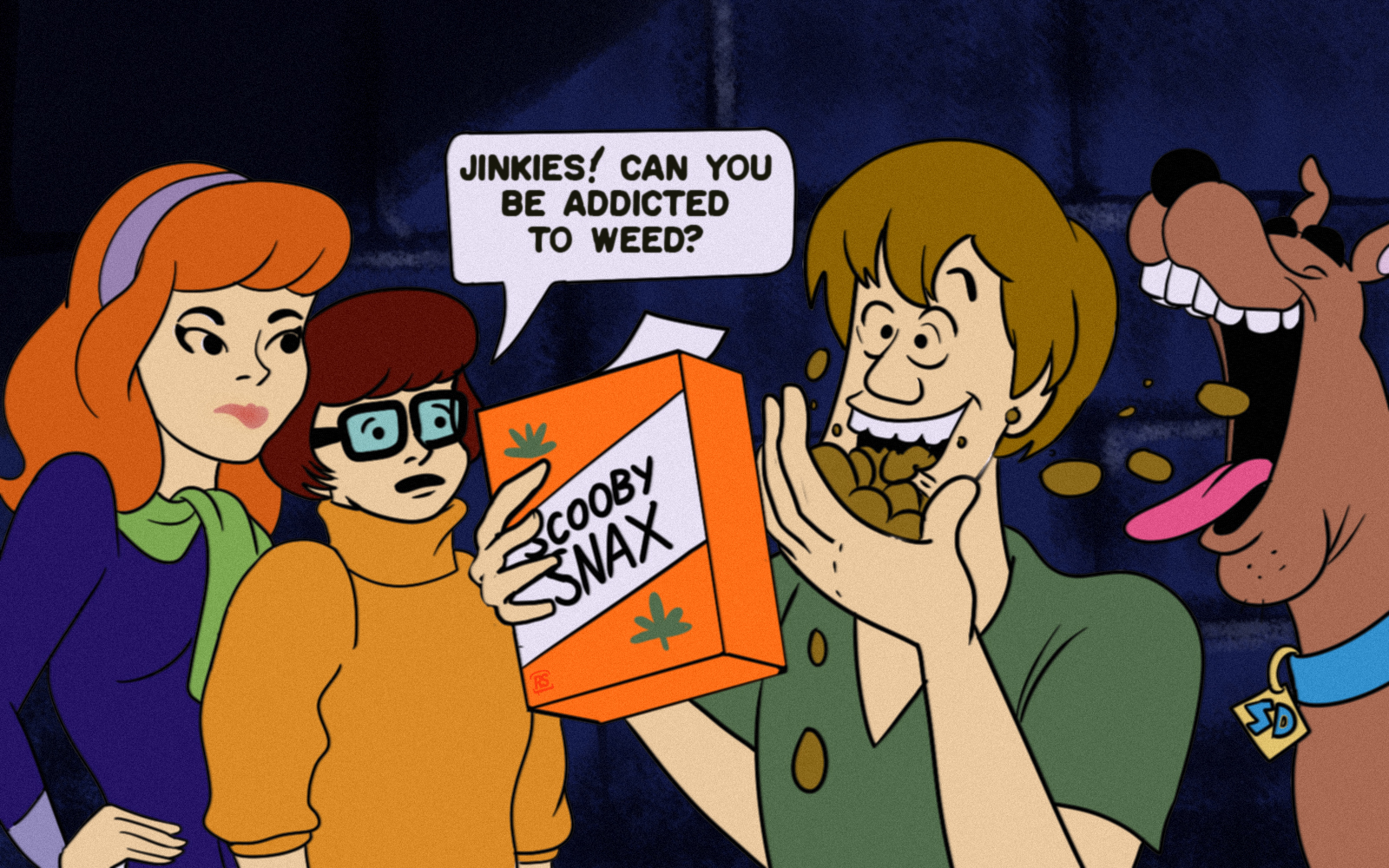Cannabis is the most widely used federally illicit drug in the United States. Over half of adults have ingested cannabis, or weed, in their lifetime, even though it is still considered a schedule one narcotic with no available medical uses. The stigma around stoner-dom has lightened over the last decades as state legislators, in all but six states, legitimized cannabis for recreational or medicinal use.
There is a misconception surrounding whether or not weed is addictive, while cannabis users wrestle with defining their own relationship with this multifaceted plant. So, can you get addicted to weed? It is always beneficial for people to explore their relationship with substances and work to understand the complex disease of addiction.
Weed as Medicine
Medical practitioners and laymen alike have seen the benefits of weed for a variety of chronic disorders. States with medicinal marijuana have seen lower rates of opioid abuse as people substitute weed for the more sinister opioids offered at the doctors office. Seventy percent of drug overdoses in the United States involve opioids and almost thirty percent of opioid prescriptions end up getting abused.
Cannabis is only FDA approved for medicinal care of patients with two severe forms of epilepsy. This is partially due to the fact that the criminalization of weed hinders researchers from exploring promising treatment opportunities. Cannabis and cannabis derivatives – like Delta-8, Delta-9, and Delta-10 – have been researched as treatments for ailments like Alzheimer’s, mental health disorders, pain management, and congestive heart failure. No one should be shamed or deterred from using medicines that heal and improve their quality of life.
Pharmaceutical companies have a vested interest in keeping cannabis use stigmatized and criminalized. Not only does its schedule one listing keep researchers from exploring the potential benefits, but it keeps all research in the hands of the US Government.
Researchers attempting to explore the benefits of cannabis must first go through a complex certification process and ultimately become a member of the DEA. These limitations directly benefit pharmaceutical companies, as they can legally push their products while cannabis researchers wade through legal boundaries and people, primarily people of color, sit in jail with marijuana convictions.
What Is Addiction?
The disease of addiction comes with a spectrum of definitions due to the fact that addiction itself comes from a variety of factors. Broadly, addiction is the use of a substance in an uncontrollable way with obvious negative ramifications. The scientific community refers to addiction as substance abuse disorders and close to twenty million Americans battle some form of addiction.
More than ninety percent of adults consume caffeine daily yet being addicted to caffeine isn’t going to lose an applicant a job or cause legal consequences. Identifying as an addict comes with more challenges than managing the disease itself. One must deal with the demonizing stereotypes and overall misconceptions surrounding what addiction really means.
Addiction is a disease that can be managed and many find recovery with proper resources, support and guidance rather than shame.
Physical Addiction
Physical addiction is when the regular use of a substance alters one’s brain chemistry. Caffeine, amphetamines, and nicotine are all more physically addictive than cannabis. Physical addiction is marked by the lack of the substance causing noticeable behavioral and physiological changes, otherwise known as a withdrawal. Withdrawals can be mild or severe depending on circumstances such as frequency of use and overall health.
Withdrawal symptoms from weed are all fairly mild and can include changes in sleep, mood or appetite. This is a far cry from withdrawal symptoms of legal substances like alcohol, benzodiazepines and sedatives, which can be deadly. There is currently no evidence that cannabis contains any physically addicting ingredients.
Psychological Addiction
Addiction is more than a physiological dependence on a substance it involves the psychological pull towards a specific feeling. The predictability of substance use drives addicts toward using because of the way drugs can instantly alter their frame of mind. The nucleus accumbent is the portion of the brain in charge of interpreting pleasurable feelings and driving one to seek out more.
Ingesting or doing something that lights up the nucleus accumbent increases the probability one will repeat the behavior. This can happen with eating sugar or exercising or — yes, smoking weed. Psychological addiction does not depend on physical addiction, though they often co-occur.
Quality of Life
Part of defining addiction is taking inventory of a substance’s effect on one’s life. This requires a level of introspection that demands a lot of effort for people stuck in the cycles of substance abuse. What started as a way to relax or manage anxiety can turn into something that is stopping someone from thriving in their life. One must untangle themselves from their own ego, otherwise known as ego death, as well as the force of habit surrounding substance use in order to really evaluate its effect on their life.
Resources like therapy and support groups exist to aid people in their journey towards understanding their own relationships to substances. Daily cannabis use can be the reality for someone suffering from chronic pain yet this dependence does not harm their quality of life. Deciding how something is affecting the quality of one’s life is an incredibly personal decision. What works for someone may not work for someone else and what is currently working may change over time.
So, Can You Get Addicted to Weed?
Clinical research shows weed is not physiologically addictive. However, that doesn’t necessarily rule out the potential of growing a slight dependence. The differences between addiction and dependence are nuanced and some medical institutions don’t even use the terminology anymore.
Addiction is a disease characterized by the specific activation of reward pathways in the brain. Dependence is a more holistic view of the body and psyche’s desire for a certain substance or behavior. Whereas, the development of a cannabis dependence relies on genetic, psychological and social factors. Cannabis dependence often co-occurs with other psychiatric disorders and is more present in minority groups.
The stigma surrounding being a stoner or enjoying cannabis in a recreational way makes it more challenging for those using weed as medicine to have access to it. The criminalization and demonization of smoking a joint rather than having a cocktail or popping a pill can drive people towards secrecy and away from community and resources. Weed use can inspire, provide relief and help replace more dangerous and addictive substances. Consumption of any substance is a personal decision with risks and consequences specific to each person.
Fostering an open dialogue surrounding cannabis requires honesty that is challenging due to the current legal status and lack of updated and evidence-based research available. For many people, it is not safe to come out about their use of cannabis whether it’s due to legal or social reasons. This is an added burden for people struggling to be open about their cannabis use.
For others, the classification and negative connotation surrounding weed drive them toward hiding the benefit it has had in their lives. People are deserving of pleasure and relief and just like some enjoy wine or expensive cigars some prefer cannabis.
Drawing the line surrounding substance use can be an evolving decision, aided by a professional if deemed necessary. It may be worthwhile for those questioning the benefits of their cannabis use to explore the role it is playing in their lives. Sobriety can seem daunting to someone seeking help with addiction, whether to cannabis or not, and perpetuating antiquated dialogues only further repudiates the most vulnerable.
Psychonaut Thoughts
Do you think there are addictive qualities of weed? If you feel comfortable we’d love to hear your comments, experiences and anything else worth sharing. If you want more content surrounding psychoactive substances and the latest news make sure to subscribe to our weekly newsletter.













